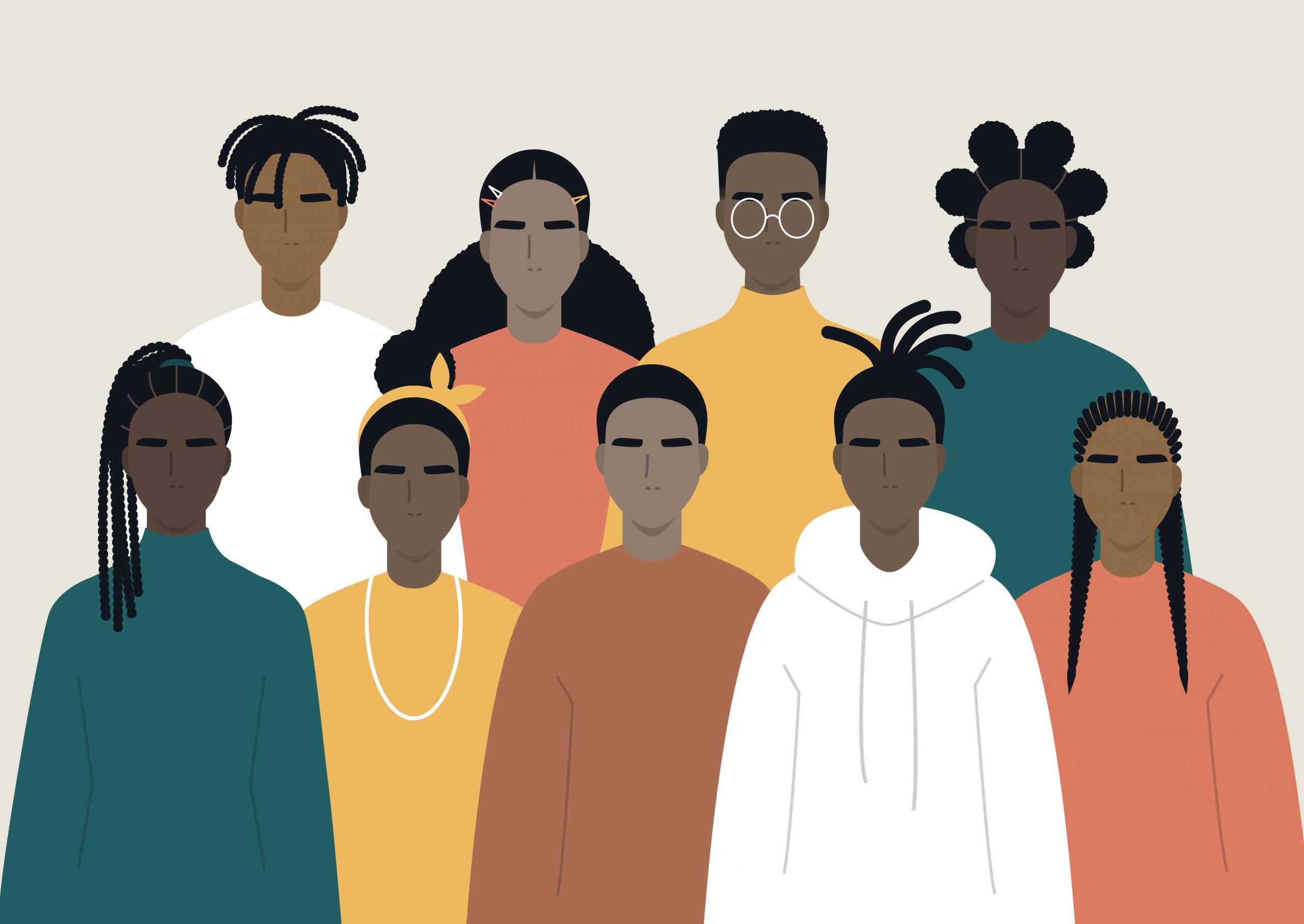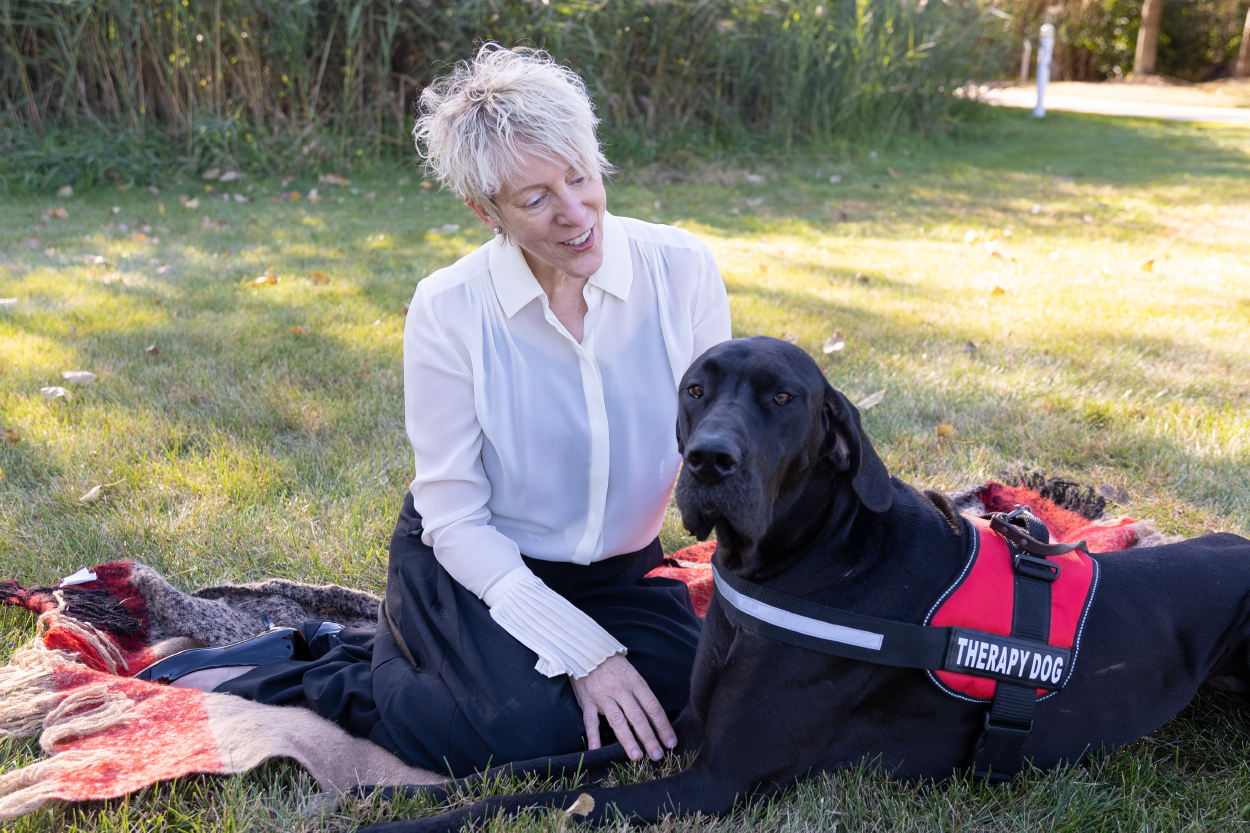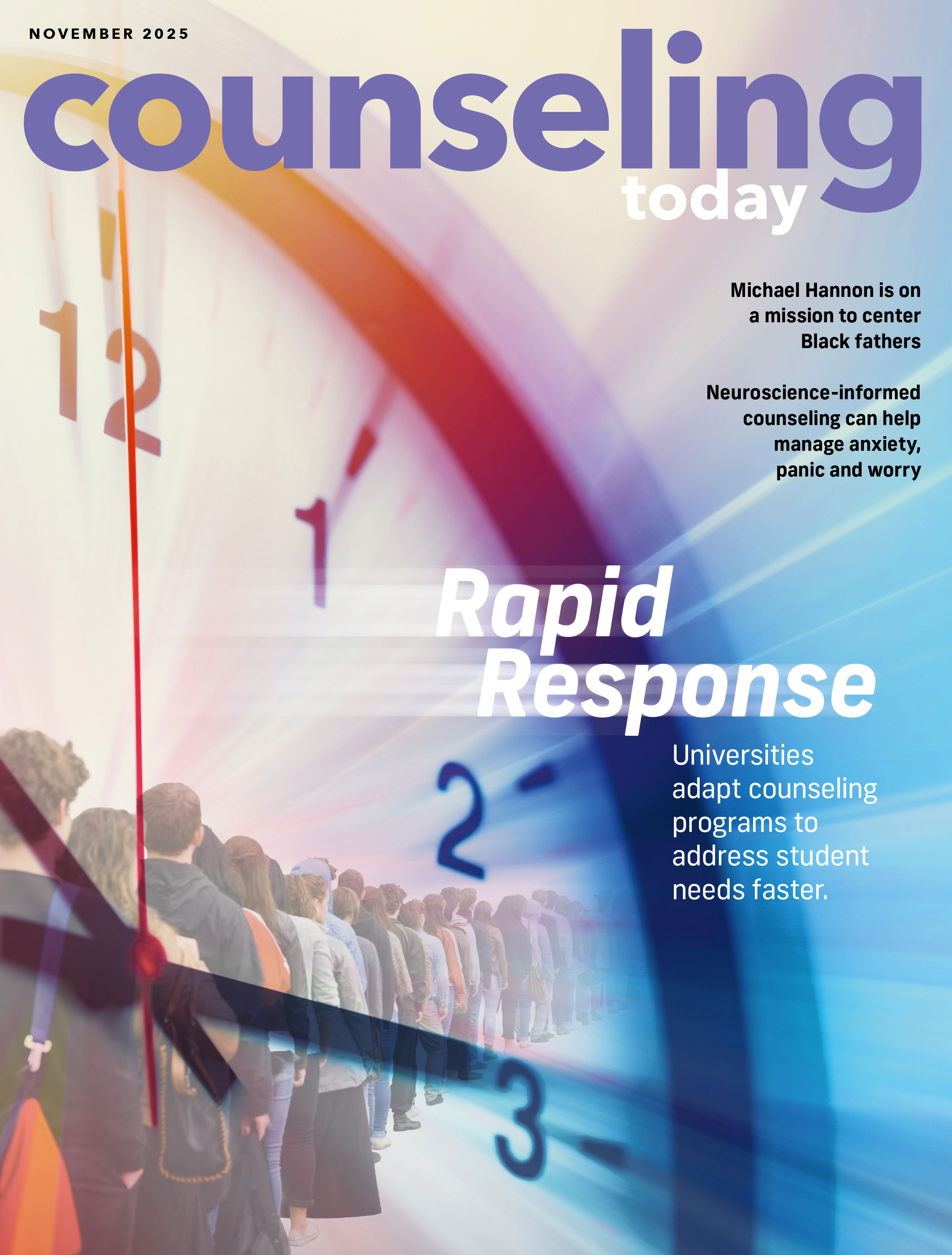Explore Counseling Today Articles
-
 Mental health care stigma in Black communitiesFebruary 2023 |By Samantha Cooper
Mental health care stigma in Black communitiesFebruary 2023 |By Samantha CooperBlack individuals are more likely to experience mental health problems but are less likely to seek treatment for a variety of reasons.
-
 The loss of our ‘humanness’February 2023 |By Suzanne A. Whitehead
The loss of our ‘humanness’February 2023 |By Suzanne A. WhiteheadBy remaining clinically objective, do counselors inadvertently sacrifice the client’s humanity?
-
 Helping youth in foster care cope with grief and abandonmentFebruary 2023
Helping youth in foster care cope with grief and abandonmentFebruary 2023Youth who are aging out of the foster care system frequently wrestle with feelings of grief and abandonment.
-
 The benefits of a multisensory experience in therapyFebruary 2023 |By Ashley Heintzelman
The benefits of a multisensory experience in therapyFebruary 2023 |By Ashley HeintzelmanThe rise of telebehavioral health led one therapist to rediscover the value of in-person therapy and multisensory experiences.
-
 ‘The walls come right down’: The clinical benefits of therapy dogsFebruary 2023 |By Scott Gleeson
‘The walls come right down’: The clinical benefits of therapy dogsFebruary 2023 |By Scott GleesonTherapy dogs can be more than our best friends; they can also help reduce clients’ stress and provide the emotional safety needed to process traumatic and painful life events.
-
 Identifying psychological abuseFebruary 2023 |By Avery Neal
Identifying psychological abuseFebruary 2023 |By Avery NealPsychological abuse is a complex and prevalent issue that can go unnoticed unless clinicians learn to recognize the signs and use appropriate interventions to support clients.
-
 Counseling youth aging out of foster careFebruary 2023 |By Lisa R. Rhodes
Counseling youth aging out of foster careFebruary 2023 |By Lisa R. RhodesRachel Jacoby, a licensed professional clinical counselor supervisor, once worked at a community mental health agency providing counseling services to youth in foster care.
-
 What quiet quitting says about workplace mental healthJanuary 2023 |By Samantha Cooper
What quiet quitting says about workplace mental healthJanuary 2023 |By Samantha CooperThe term “quiet quitting” has gained popularity since COVID-19 began, but what does this really say about our work boundaries and mental health?
-
 Does your personality make you more vulnerable to abuse?January 2023 |By Avery Neal
Does your personality make you more vulnerable to abuse?January 2023 |By Avery NealHere are four personality characteristics that make a person more vulnerable to psychological abuse.
-
 Generational trauma: Uncovering and interrupting the cycleJanuary 2023 |By Bethany Bray
Generational trauma: Uncovering and interrupting the cycleJanuary 2023 |By Bethany BrayCounselors who understand the complexities of generational trauma can help clients acknowledge the role it plays in their lives, find healing and ultimately break the cycle.
Search CT Articles
Filter CT Articles
Current Issue
Sign Up for Updates
Keep up to date on the latest in counseling practice. Sign up to receive email updates from Counseling Today.


